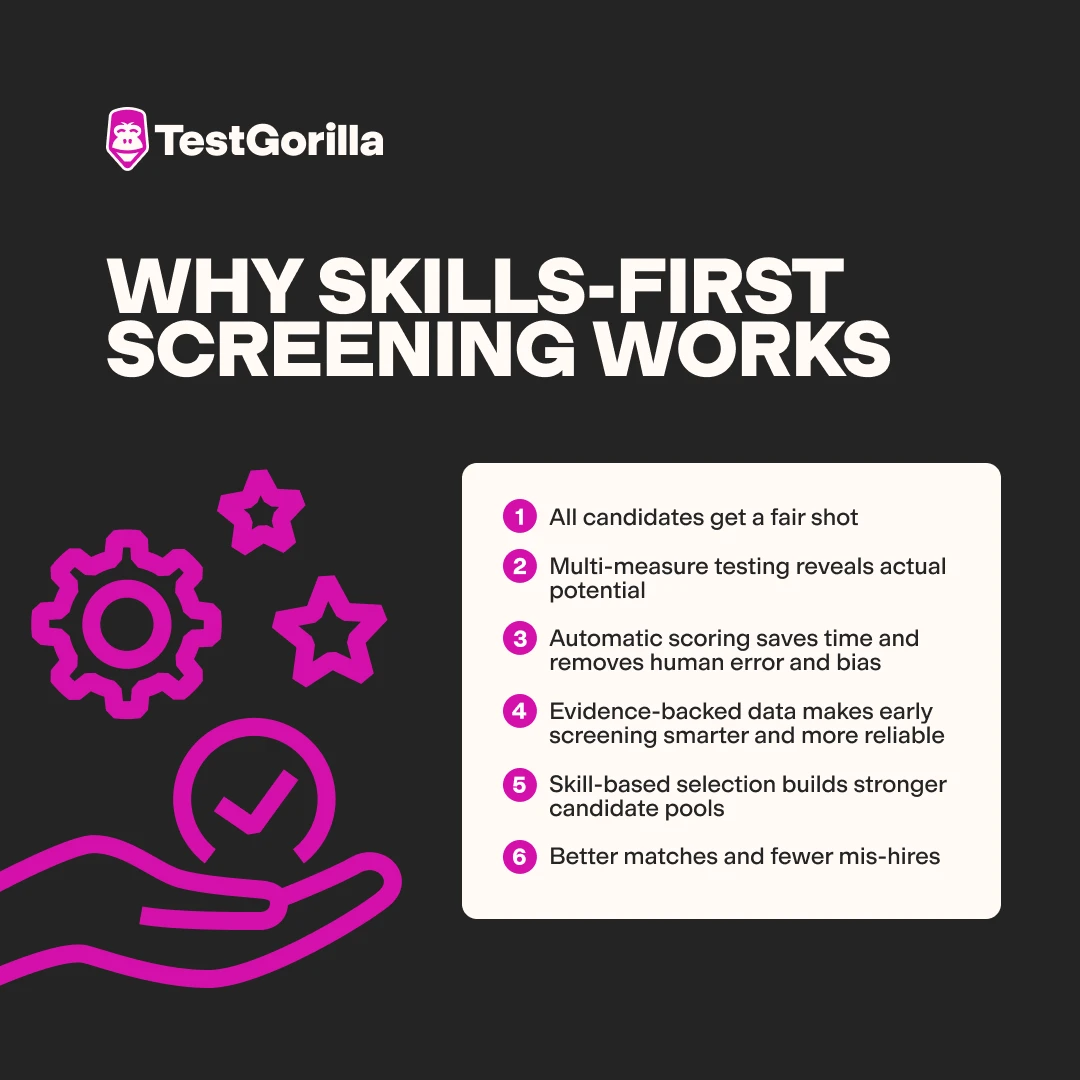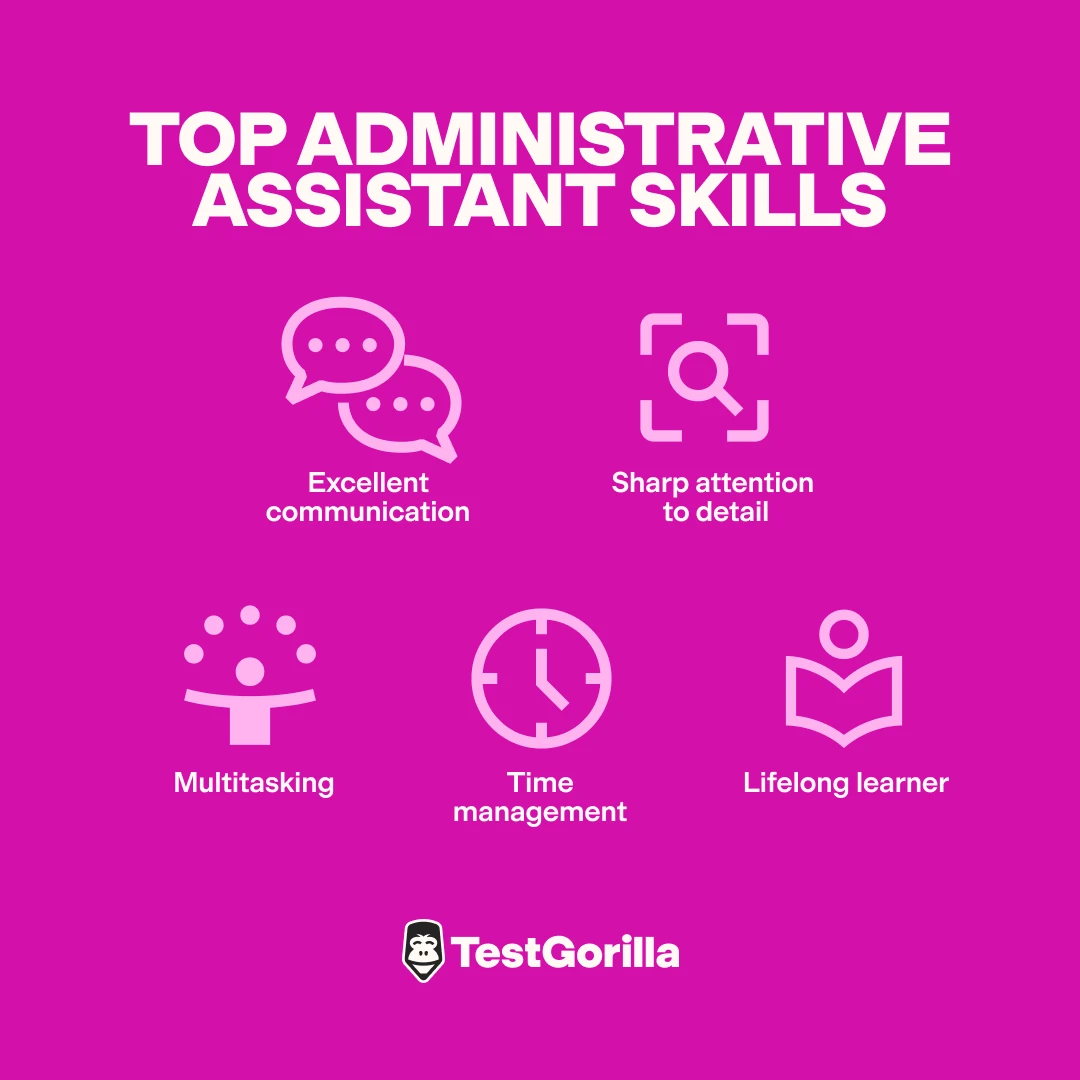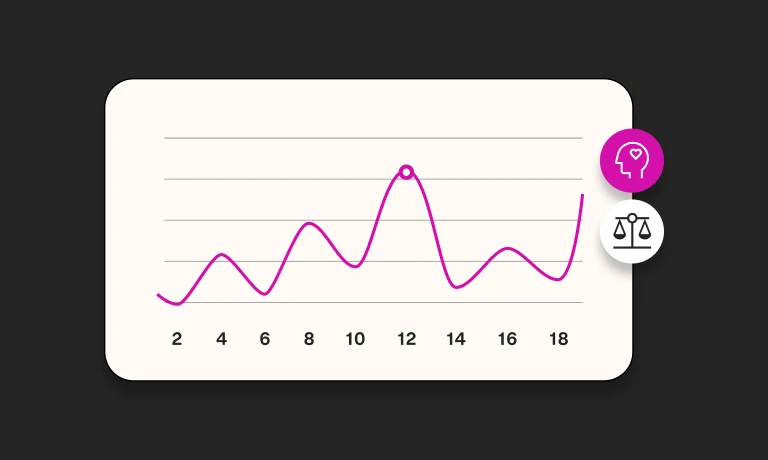No more mis-hires: Use an administrative assistant skills test to screen candidates
Administrative assistant roles carry huge responsibilities: managing calendars, coordinating meetings, safeguarding sensitive information, and keeping teams on track.
That makes the cost of a mis-hire steep. The US Department of Labor estimates that a bad hire costs 30% of the employee’s first-year salary – tens of thousands of dollars for this role – not including the lost productivity, reputational damage, and strain on your team.
So, why do so many organizations still get it wrong? It’s because they’re screening candidates the wrong way.
Resume-based screening is unreliable because a resume is a self-reported sales pitch, crafted to impress. Candidates’ actual abilities can be wildly different from how they present themselves, as this employer discovered:
“I recently hired a new administrative employee. His job is to answer phones, greet guests, and complete various tasks I assign to him. His customer service skills are strong, but his attention to detail is very weak. I have given him a lot of feedback and training, but he continues to make basic mistakes and misses almost every deadline I give him.
But he is constantly telling me how great a job he’s doing.”
This is why skills-based testing methods – like TestGorilla’s Administrative Assistant Test – are the best way to screen candidates. Skills tests reveal candidates' true ability, including the flaws that resumes so easily hide, giving employers a far more accurate basis for screening.
Table of contents
- Resume-based screening leads to bad hires
- Skills-first screening works where resumes fail
- The 4 attributes of great administrative assistants
- How TestGorilla’s Administrative Assistant test enables skills-first hiring - and better hires
- Stop gambling on resumes: Upgrade your admin candidate screening with TestGorilla
Resume-based screening leads to bad hires
According to our 2025 State of Skills-Based Hiring report, 86% of US employers face challenges with resume-based hiring – from inflated claims to difficulty ranking applicants. Yet, 67% of employers still use resumes as their primary screening tool, and they pay the price in wasted time, effort, and money.
The issue is built into resumes themselves. They’re self-reported, easy to exaggerate, and hard to verify. A 2025 report by FlexJobs found that one in three US workers has lied on their resumes, with 10% inflating their skills.
Why is this happening? Well, it’s simple: to impress employers. As career coach Lauren Fleiser explains:
“Not every early-career role produces a measurable impact worth shouting about. Sometimes the real achievement is learning how to work in a professional environment, collaborating with others, or building confidence.
“But these subtler milestones don’t translate into flashy bullet points. So candidates start inflating their contributions, claiming outcomes that sound good – even if they’re not entirely true.”
And because it’s challenging and time-consuming to confirm what’s true and what isn’t, recruiters often default to taking resumes at face value – a gamble that too often leads to poor hires.
Even when resumes are accurate, they rely on proxies like education or years of experience, which don’t always predict performance. A candidate could have loads of experience and an advanced degree but still mishandle scheduling, lose documents, or collaborate poorly.
For instance, according to a study cited by McKinsey, hiring for education is about one-fifth as predictive of job performance as hiring for skills, while hiring for work experience is less than half as predictive. Even the employers we recently surveyed indicated having trouble predicting job success with resumes.
Research has also consistently shown that recruiters overestimate what resumes reveal. In one interviewing.io experiment, recruiters’ predictions of candidate performance were no more accurate than a coin flip. As the experiment’s designer, Aline Lerner, said, “If this was predicting student performance, recruiters would be off by two full letter grades.”
Skills-first screening works where resumes fail
Skills-first screening beats resume-based screening hands down. Employers who use skills tests get an objective accurate overview of every candidates’ true capabilities from the very start of the hiring process. From here, the benefits snowball:
All candidates get a fair shot.
Multi-measure testing (looking at multiple “measures,” including skills) gives the full picture of candidates’ actual potential.
Automatic scoring saves time and eliminates the chance of human error and unconscious bias.
Evidence-backed data makes early screening smarter and more reliable.
Selection is based on skills, creating stronger candidate pools.
This results in better matches and fewer mis-hires.
The ultimate payoff is no more nasty surprises. With skills-testing, employers won’t discover too late that their new hire isn’t the multitasking wizard they claimed to be, because they screened for real ability with a multitasking test instead of gambling with the “truth” of resumes.
Here’s the proof, according to our recent research.
While fewer than half of US employers find resumes effective in 2025, 84% of employers are happy with the hires they make using skills tests.
71% of employers say skills-testing is a better predictor of job success than resumes.
3 in 5 employers using skills tests report a faster time-to-hire
2 in 3 employers have reduced the number of mis-hires by using skills tests
By reducing mis-hires, skills-based hiring helped US employers save up to $22,500 in 2024.
The best insights on HR and recruitment, delivered to your inbox.
Biweekly updates. No spam. Unsubscribe any time.
The 4 attributes of great administrative assistants
Skills-first screening involves knowing which skills to screen for.
Scan today’s administrative assistant job descriptions and you’ll soon spot a pattern: they’re multifaceted roles that demand a range of skills.
From managing files to facilitating communication between internal and external stakeholders, administrative assistants keep organizations moving efficiently. Without them, schedules might collide, projects could stall, crucial documents may vanish, and sensitive information could end up in the wrong hands.
While years of experience can hone the skills admin assistants need to succeed in the role, equating years of experience to on-the-job excellence is sketchy at best. Candidates’ educational backgrounds can be just as misleading.
As Alicia Fairclough, Founder of EA How To, and Yvette Pearson, Founder of The Admin Wrap, observe in the 2024 United States Administrative Professionals Salary Survey:
“It’s useful to note that, rather than degrees, many jobs now ask for a different kind of knowledge.”
The best administrative assistants are effective at keeping operations on track because they possess the following attributes:
1. They have excellent all-round communication
Communication skills consistently rank at the top of most sought-after skills lists – the majority of global recruiters prioritize verbal communication skills above all other abilities when evaluating candidates’ potential for success.
Great administrative assistants are highly competent communicators, regardless of who they interact with. They adapt their tone and style to meet colleagues, executives, clients, and customers at their level while keeping communication clear and professional.
They need excellent written communication to draft professional communication, top-notch verbal skills to coordinate internal team and clients, and high competence in using digital communication tools, like email and Slack.
2. They have a hawk’s-eye attention to detail
Great administrative assistants are sticklers for accuracy. They always double-check their work and easily spot errors that others miss before they can cause any harm. This precision saves companies valuable time, avoids embarrassing mistakes, and can even save companies from huge financial loss.
Leaders and other professionals with admin assistants like this can rely on them to deliver quality work, enabling them to focus on their main priorities instead of having to constantly check their work for mistakes.
3. They effortlessly juggle tasks and manage their time
The best administrative assistants aren’t phased by being pulled in multiple directions, even as tasks stack up with deadlines to meet.
While situations like this plunge some assistants into panic mode, great administrative assistants get calm and methodical. They evaluate what needs to be done, prioritize critical tasks, switch between responsibilities with ease, and constantly re-evaluate priorities to ensure nothing slips through the cracks.
4. They’re lifelong learners
While most administrative assistant duties can be learned on-the-job, learning isn’t a one-time thing – especially with today’s quickly evolving technology.
Great admin assistants understand this and they’re willing and capable of learning new tools, systems, and ways of working. They don’t fight feedback – they embrace it and use it to improve their work.
Admin assistants with this attitude toward learning are invaluable to companies because they become more valuable over time.
Great administrative assistants are often called the backbone of organizations for good reason. They strengthen workplaces, don’t need to be micromanaged, and keep pace no matter how fast work comes in or how quickly their work environment changes.
How TestGorilla’s Administrative Assistant test enables skills-first hiring - and better hires
TestGorilla’s Administrative Assistant Skills test makes the skills-based approach practical and scalable for your admin assistant candidates.
Built by hiring experts, it helps you test admin candidates by measuring the four competencies that matter most in this role: accuracy, multitasking, communication, and organization.
Whereas resumes focus on candidates’ past, this administrative hiring test digs into what really matters: the relevant, practical skills candidates currently have, and their future potential.
It evaluates candidates against these competencies using questions and exercises that simulate real-world tasks and situations that admin assistants handle daily. You get multiple data points that give you confidence that the candidates you bring to interview have these core skills to succeed.
But you want candidates who can do this, fit seamlessly into the organization, and succeed in the role long-term.
The key to creating an admin assistant evaluation to find this type of talent is pairing it with complementary skills tests at the start of the hiring process.
Combine it with other tests to make a thorough assessment
TestGorilla’s admin assessment test measures core skills that are common to all admin assessment positions, but there are other things to screen candidates for that depend on the unique requirements of the role you’re hiring for.
You can use the Administrative Assistant skills test with up to four other tests to make a custom assessment that gives a well-rounded view of applicants. But before you start looking for your perfect match, you need to define what “perfect” means.
Some points to consider to pinpoint the perfect match for your role are:
What will the new hire spend most of their time doing?
What skills are essential to the role, and how proficient must they be?
Does the role demand any skills that are not typical of an administrative assistant role?
Who will the assistant work with on a day-to-day basis?
What systems and processes will the new hire need to master? How quickly?
What personal attributes make someone a good fit for the company culture?
Once you’ve identified the skills – both hard and soft – to look for in candidates, browse TestGorilla’s library for complementary tests.
Here are some tests that are relevant to your administrative assistant role:
Organizational skills tests, like our Time Management test: Our time management assessment reveals how well candidates can prioritize, plan, and manage their responsibilities.
Software skills tests: These will help you find candidates who have the critical software skills for administrative assistants. Tests are available for commonly used software like MS Word, Excel, and Gmail.
Operating systems tests: Assess candidates proficiency in working with Microsoft Windows, macOS or Linux computer systems.
Typing Speed test: Reveals candidates typing speed in words per minute (WPM), accuracy, and use of capitalization and punctuation.
Language tests: These strengthen communication skills screening by evaluating candidates' competency in English, and other languages used in the workplace.
Use it for early-stage filtering
Embed your complete assessment, including our pre-employment test for administrative assistants, at the very start of the application process. This will give you an overview of all applicants, which you can use to shortlist the most capable candidates.
By doing this, you give every applicant a fair chance of progressing to the next stage, ensuring you don’t miss high-potential talent and that you remain compliant with federal and state employment discrimination laws.
→ Want to learn more about assessing admin candidates? Discover our guide on assessing administrative assistant skills.
Stop gambling on resumes: Upgrade your admin candidate screening with TestGorilla
Resumes can’t tell you who’s truly qualified for your administrative assistant role, but skills tests can.
Assessment tools like TestGorilla’s Administrative Assistant test give you clear, objective data on the competencies that matter most, so you can hire with confidence the first time.
Ready to replace guesswork with skills-based certainty? Book free demo or sign up for a free plan today.
You've scrolled this far
Why not try TestGorilla for free, and see what happens when you put skills first.




















